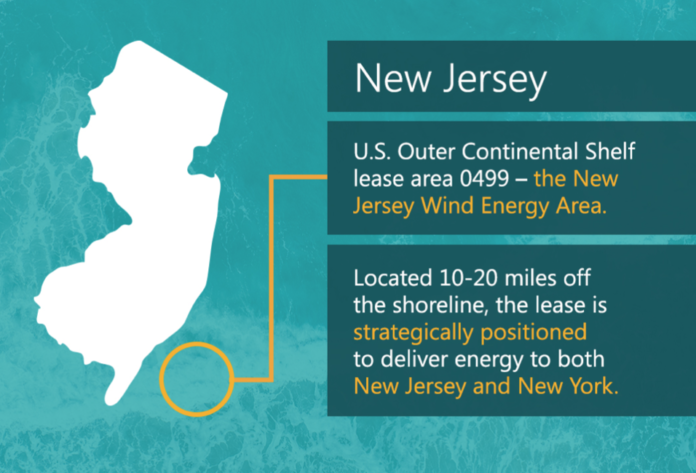Atlantic Shores Offshore Wind, a 50:50 partnership between Shell New Energies US LLC and EDF Renewables North America, has launched two buoys that will collect critical atmospheric and weather data, and track the migration of species of birds, fish, turtles and other animals that have been nanotagged by researchers.
Each buoy will be deployed in the offshore wind developer’s lease area off the coast of Atlantic City, N.J., to strengthen atmospheric models that help inform how the developer designs and estimates energy production for their proposed project. Some data collected will also help deepen research of the Mid-Atlantic Cold Pool, as well as help study animal migration and stop-over activities to inform the development of offshore wind in the area.
The buoy deployment is the latest stage of progress for Atlantic Shores as they continue to study their lease area for the eventual build-out of over 3 GW of offshore wind. While progressing their portfolio of projects, the developer continues to work with state universities conducting atmospheric and migration research off the New Jersey coast. Last year, Atlantic Shores and Rutgers University Center for Ocean Observing Leadership (RUCOOL) collaborated on the installation of a wind LiDAR instrument alongside the causeway leading to the Rutgers University Marine Field Station in Tuckerton, N.J.
“We are thrilled to progress the study of our lease area and provide data to institutions such as Rutgers University,” said Jennifer Daniels, development director of Atlantic Shores. “The analysis that students, faculty and our team will conduct is essential to further develop our knowledge of the lease area’s atmospheric and ecological conditions. Atlantic Shores leads with science, and we are proud to collaborate with RUCOOL to deepen the body of research on coastal New Jersey waters.”
The buoys will be launched in May with the atmospheric data collection instruments and this fall the sensors will be added to begin collecting migration and stop-over data of turtles, bird species, fish and other species which may be nanotagged – including bats and large insects. The sensors will collect data on the unique signature emitted by each tag, including animal location, migration speed between points, length of stop-over and other aspects about their behavior and conservation.
RUCOOL will use some of the data collected from the upcoming buoy deployment and the ongoing wind LiDAR installation to evaluate the Rutgers University Weather Research Forecasting atmospheric modeling system.




